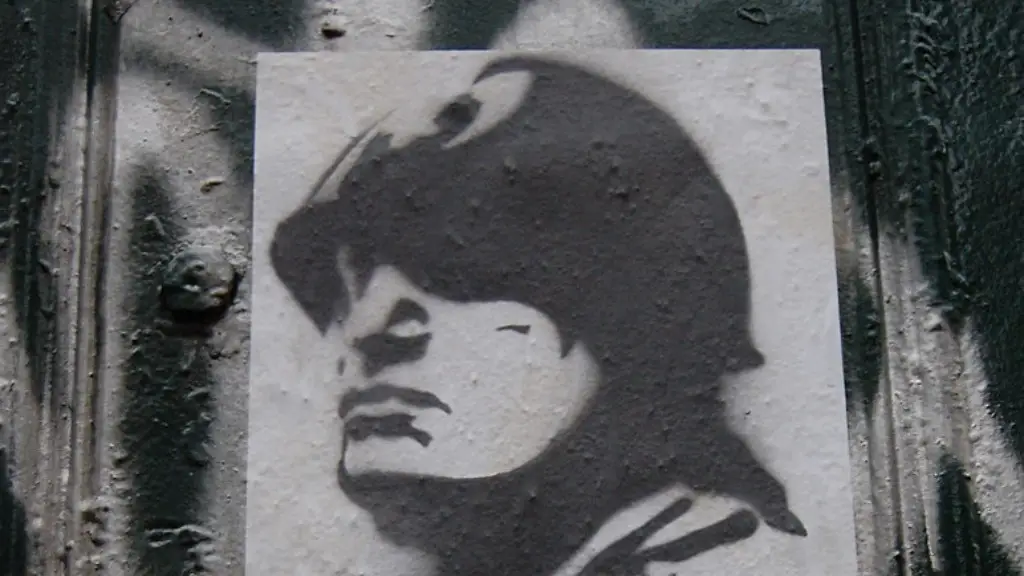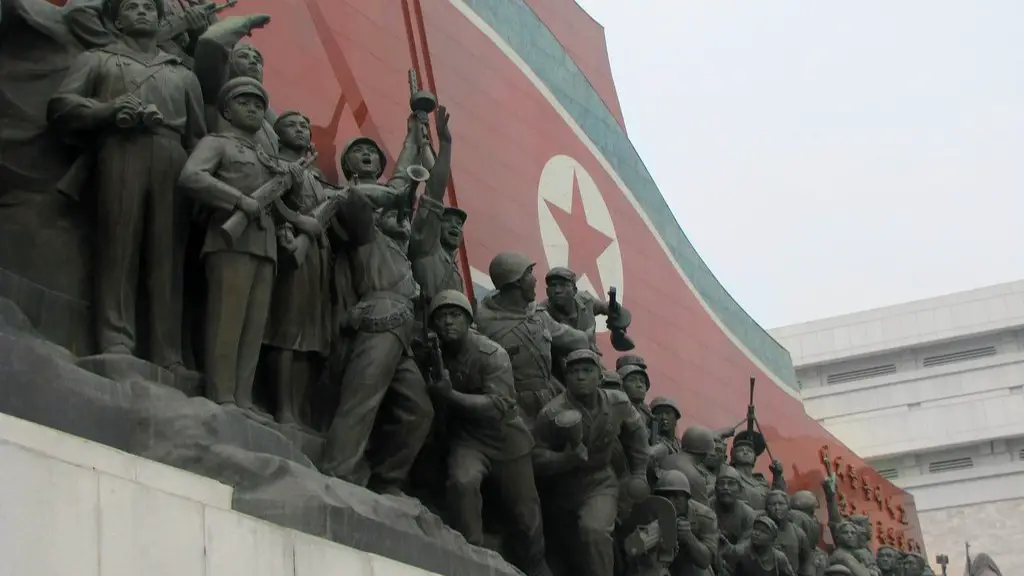Muammar Gaddafi was a Libyan revolutionary and statesman who served as the de facto leader of Libya from 1969 to 2011. He was one of the longest-serving leaders of a modern Arab state and the world’s longest-serving non-monarch head of state until his death in 2011. A radical and often unconventional thinker, Gaddafi’s rule was characterized by personalistic rule, promoting direct democracy and socialism, as well as Islamization and having a foreign policy of anti-imperialistic and anti-Western liberalization.
Gaddafi was born into a Bedouin tribe in the desert of Libya on June 7th,1942. He studied at the Libyan Military Academy and then joined the army as a military officer. He quickly rose through the ranks and came to be seen as a political leader by 1969. In 1969 he toppled the ruling monarchy and formed the Libyan Arab Republic. He declared himself head of state and announced his dream of a unified Arab republic and a socialist government with himself at its head.
Gaddafi’s rule was initially met with enthusiasm and optimism, as the Libyan people enjoyed newfound economic prosperity and political freedom under his revolutionary leadership. Gaddafi instituted a number of social reforms, which improved the quality of life for many Libyans and increased their standard of living. He championed women’s rights and established numerous programs to promote economic opportunity. Additionally, Gaddafi attempted to end Western reliance, as he sought to strengthen Libya’s autonomy, oppose foreign interference, and promote a form of Islamic socialism. Under his leadership, Libya’s oil production soared and its economy became the most prosperous in Africa.
In recent years, Gaddafi’s rule has become increasingly controversial, as his opponents argue that he has become oppressive and authoritarian. His decision to intervene in domestic and foreign affairs has been criticized, as has his escalation of violence against dissidents. Internationally, his decisions to support a number of controversial and anti-Western fighters and organizations, including the IRA and Hezbollah, have resulted in negative reaction and criticism from the international community.
The world’s reaction to Gaddafi has been generally critical and many view him as an autocratic leader who has pursued power at the expense of his people’s freedom. His personalistic rule has caused many to question the sustainability of his leadership, and there have been reports of human rights violations and other abuses. His rule of the country has been erratic and unpredictable, and many of his policies have been met with popular opposition. In 2011, his rule was brought to an abrupt end when he was killed by rebel forces during the Libyan Civil War.
Libya’s Human Rights Record
Gaddafi has also been criticized for his rule’s human rights record. Under his rule, Libya had one of the worst records in the world when it came to human rights abuses. Political repression, arbitrary arrests, and torture were common under Gaddafi’s rule. Freedom of speech and of the press were severely limited. In addition, women’s rights were restricted and a number of reports have surfaced detailing state-sponsored sexual harassment and assault. These human rights abuses have been widely condemned by the international community.
Libya’s International Relations
Gaddafi’s policies and actions have had a wide-reaching effect on international relations. His foreign policy was largely centered on promoting Libyan autonomy from foreign forces, in addition to his opposition to imperialism and Western liberalism. His support for a number of controversial organizations, including the IRA and Hezbollah, garnered criticism from the international community, and further strained Libya’s already tense relations with the West. Additionally, his decision to supply weapons to a number of African rebel groups has been widely criticized. In 2011, NATO began air strikes against Gaddafi-controlled forces, escalating the Libyan Civil War.
Gaddafi’s Legacy
Gaddafi’s legacy is a contentious one and opinions on him differ drastically depending on perspective. Supporters view him as a revolutionary figure who fought against imperialism and Western domination, while his opponents regard him as an oppressive and autocratic ruler who denied freedom and democracy to his people. His death in 2011 marked the end of an era, and the lasting impact of his rule will undoubtedly continue to shape Libya’s future.
Impact of the Libyan Revolution
The 2011 Libyan revolution was a pivotal moment in the country’s history and resulted in drastic changes to the political and social landscape. Gaddafi’s removal from power sparked a period of political and social reforms, as the new government sought to build democracy and guarantee civil rights. In the years since the revolution, Libya has experienced unprecedented economic growth and improved human rights conditions. In addition, the country’s international relations have stabilized, as its new government has been relatively successful in forging closer relations with the West.
Post-Gaddafi Libya
Since the fall of Gaddafi, Libya has been in a state of transition, as the country rebuilds and reforms its political and social infrastructure. The government is seeking to reform and improve the country’s security apparatus and tackle the threat of terrorism and political violence. In addition, the country’s economic policies are in the process of being revamped, with the goal of improving the overall standard of living. Despite these efforts, however, Libya still faces numerous challenges, as the country continues to struggle with weak economic growth, political instability, and the ongoing threat of terrorism.
Guterrez Reactions
Gaddafi’s death elicited mixed reactions around the world. Supporters of the former leader were disappointed and angry, viewing his overthrow as an unjust act of foreign interference. Others viewed his death as a necessary step in the process of reforming Libya and ending an oppressive regime. The international community at large applauded Gaddafi’s removal from power, as the country embarked on a new path of democracy and freedom.

